By Kate Cebik
Development Associate
There are days when it is hard to get out of bed. And it’s not just the thermometer reading twelve.
Lately it feels like every morning I awaken to another decree of hatred–an executive order banning refugees, increased raids to deport immigrants, a call to dismantle the Environmental Protection Agency from within, a new push to suspend the rights of transgendered people. These mornings a feeling of desperation can wash over me. It stands over my blankets in the morning, tempting me to roll over, give in, and just stay in bed.
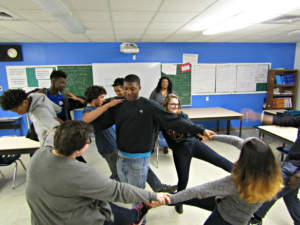 But there is another force–hope–that encourages me to push aside the comfort of the covers and place my feet on the floor, ready to push back. Many wonderful sources fuel this hope, including my work at Common Ground to work with smart, dedicated, thoughtful people. Witnessing the power and passion behind the next generation of leaders and thinkers as they grow and learn provides another huge source of hope.
But there is another force–hope–that encourages me to push aside the comfort of the covers and place my feet on the floor, ready to push back. Many wonderful sources fuel this hope, including my work at Common Ground to work with smart, dedicated, thoughtful people. Witnessing the power and passion behind the next generation of leaders and thinkers as they grow and learn provides another huge source of hope.
Can I just audit this class maybe? I find myself asking this question often at Common Ground. Though I haven’t yet found a way to squeeze Documenting New Haven into my job description, I am lucky enough to get to visit classes and see student presentations throughout the semester. As an individual, I find myself regularly thinking what I’ve heard from many: I wish they had classes like this when I was in high school. As a parent of a future high school student, I think, Thank goodness there are classes like these.
The Common Ground English department has a history of bringing together writing, social justice, and the lives our students live. Through years of fine tuning and tweaking, they’ve grown a powerful curriculum around this intersection. Here are just a few examples:
Survey of Literature I, Freshman, taught by Keith Lambert
- When reading Othello, students examine institutional racism, from Shakespeare’s England to today’s world, and debate Shakespeare’s intentions in writing the text.
- When they move on to the short stories unit, they address the question, “How will I face adversity?” and read pieces from different cultures all over the world to discuss conflict resolution. This year, after Keith Lamont Scott’s shooting, they wrote advice to the people of Charlotte on how to best make change, based on the resolutions of the stories they’ve read.
- Focusing on debate, argument, and public speaking, the coming semester asks, “What are the biggest choices we could make as a species to make the world a better place for the future?” This gives students the freedom to research and explore how to instigate change and make an impact in a way they find relevant and meaningful, from local to global initiatives.
- Students engage in an extensive research project to answer the following question: “What is one action humanity should embrace in order to make the world a better place for the future?” Students speak with local community action leaders and research local and global issues, brainstorming cause and effect relationships, and, ultimately, develop their own answer to this question. Then they debate each other to make their cases.
Literature Survey II, Sophomores, taught by Amy Champagne
- This course focuses on intensive reading, writing, and critical thinking skills as a process to help each student identify their own sense of place. During the fall students focus on how where we come from shapes who we become. They evaluate their individual places in the world, and then consider how we each fit within our own family and community. During the spring, students take a closer look at how we all fit within the larger world by looking at social justice topics such as women’s health, civil rights, and veterans’ rights.
- Texts include:
-
- The Joy Luck Club by Amy Tan
- “Work Boy” from William Finnegan’s A Cold New World
- The Crucible by Arthur Miller
- To Kill a Mockingbird by Harper Lee’s
- The Things They Carried by Tim O’Brien
Nature Literature, Juniors, taught by Amy Champagne
- Students to examine how humans come to define nature through children’s literature, media, and real world experiences. Throughout the fall students evaluate how humans have come to value nature and see the importance of a connection with nature in our own lives. In the spring, they look at natural disasters such as the dust bowl and Hurricane Katrina. The course attempts to answer the overarching question, “Are natural disasters actually natural or created by humans?”
- Texts include:
- Selections from Thoreau’s Walden by Henry David Thoreau
- Beloved by Toni Morrison
- The Grapes of Wrathby John Steinbeck
- Zeitoun by Dave Eggers
Documenting New Haven, primarily sophomores and juniors, taught by Monique Fraiser
- Using New Haven and the rich history it offers as the primary source, students study their city’s connections and contributions to 21st century social movements, such as Occupy and Black Lives Matter. Students are encouraged to celebrate their neighborhoods and communities in a very public way that not only demonstrates pride, but helps bring about social change. Doc New Haven recently celebrated the diversity and rich local culture around us by writing love letters to the city. Calling it “The New Haven Love Project,” students left these love letters, tucked in beautifully decorated envelopes in strategic and unexpected places all over the city, including bicycle spokes, coffee shops, cars and more.
APLAC: Advanced Placement Language and Composition, Sophomores and Juniors, taught by Joan Malerba-Foran
- Students write essays based on works by Martin Luther King, Junior and a variety of marginalized groups. Recently students focused on writing by war refugees.
Senior Social Justice Experience, Seniors, taught by Joan Malerba-Foran
- In the first semester, students author an essay for the college common application. Students also have conversations and exposure to issues of social justice and questions of power. Guest speakers—such as Isa Mujahid, founder of CT Core, and Aaron Jafferis, hip-hop poet and playwright—visited to engage students in how this work continues out of the classroom. Each senior then identifies a social justice issue that resonates with them, and drafts a proposal for the following semester’s project.
- Students spend the second semester as an agents of change. They research their issues and any existing ways those issues are handled within our community and beyond. Students design and implement a tangible project that addresses their social justice issue. Current projects include:
-
-
- Pit bulls: challenging breed stereotypes, parallels between breed stereotypes and racial stereotypes in our society
- The types and benefits of Animal Therapy
- How to Spot and Stop Bullying: a video being created for and by students
- Creating a Little Free Food Pantry
- Constructing a Meditation space at Common Ground
- Writing a modified soul food cook book that provides healthier versions of cultural favorites—to be presented with a tasting menu.
- Access to books for young children: A book drive for bilingual children and a story-making workshop aimed at the creation of bilingual books.
-
Thank you, Keith Lambert, Joan Malerba-Foran, Monique Frasier, and Amy Champagne for the impressive work you do here at Common Ground High School. I’m ready to assign myself some homework.

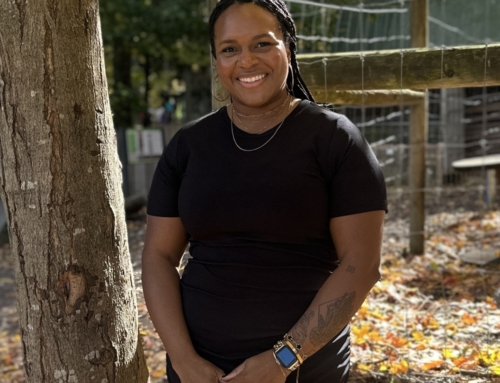
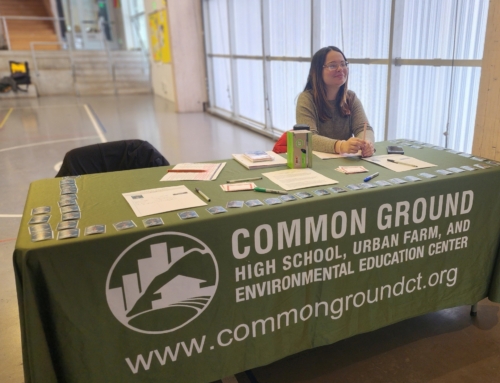
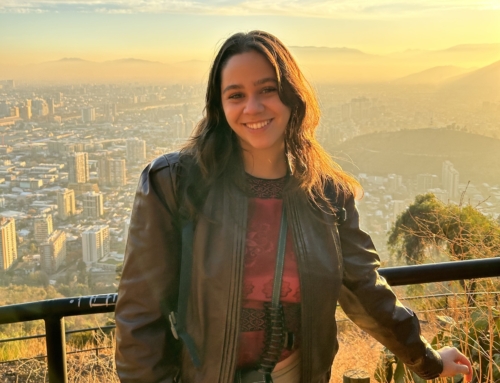
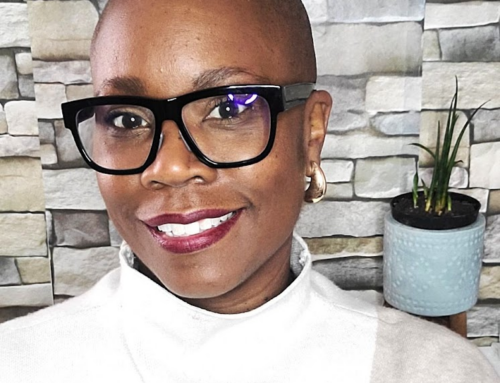
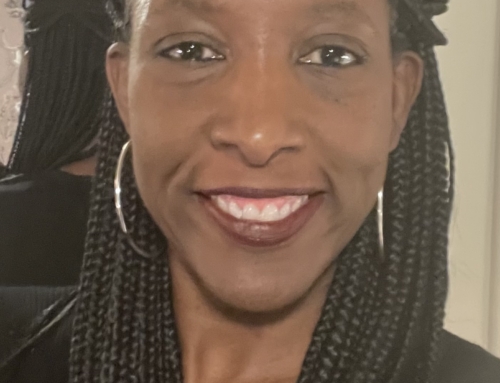
Leave A Comment